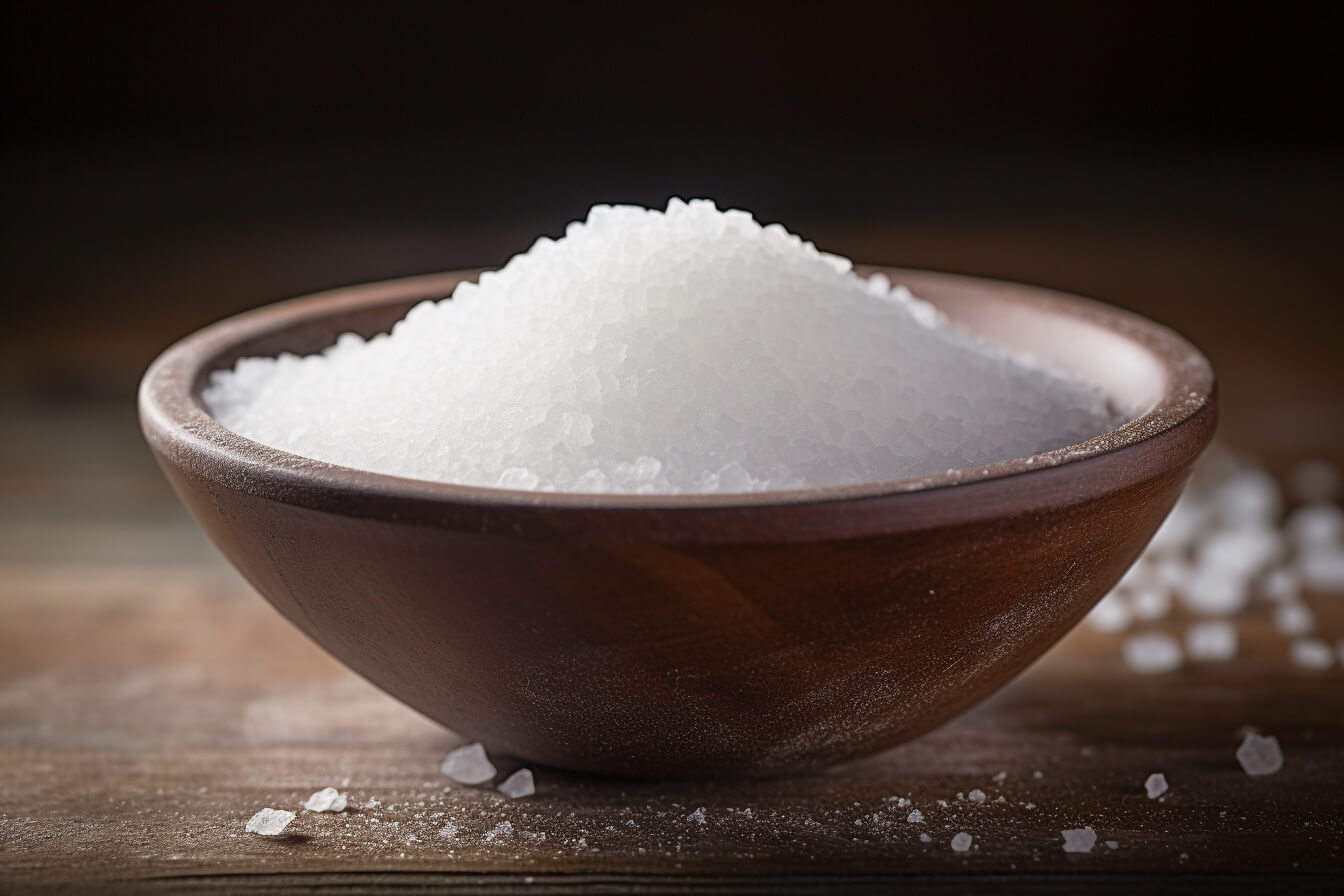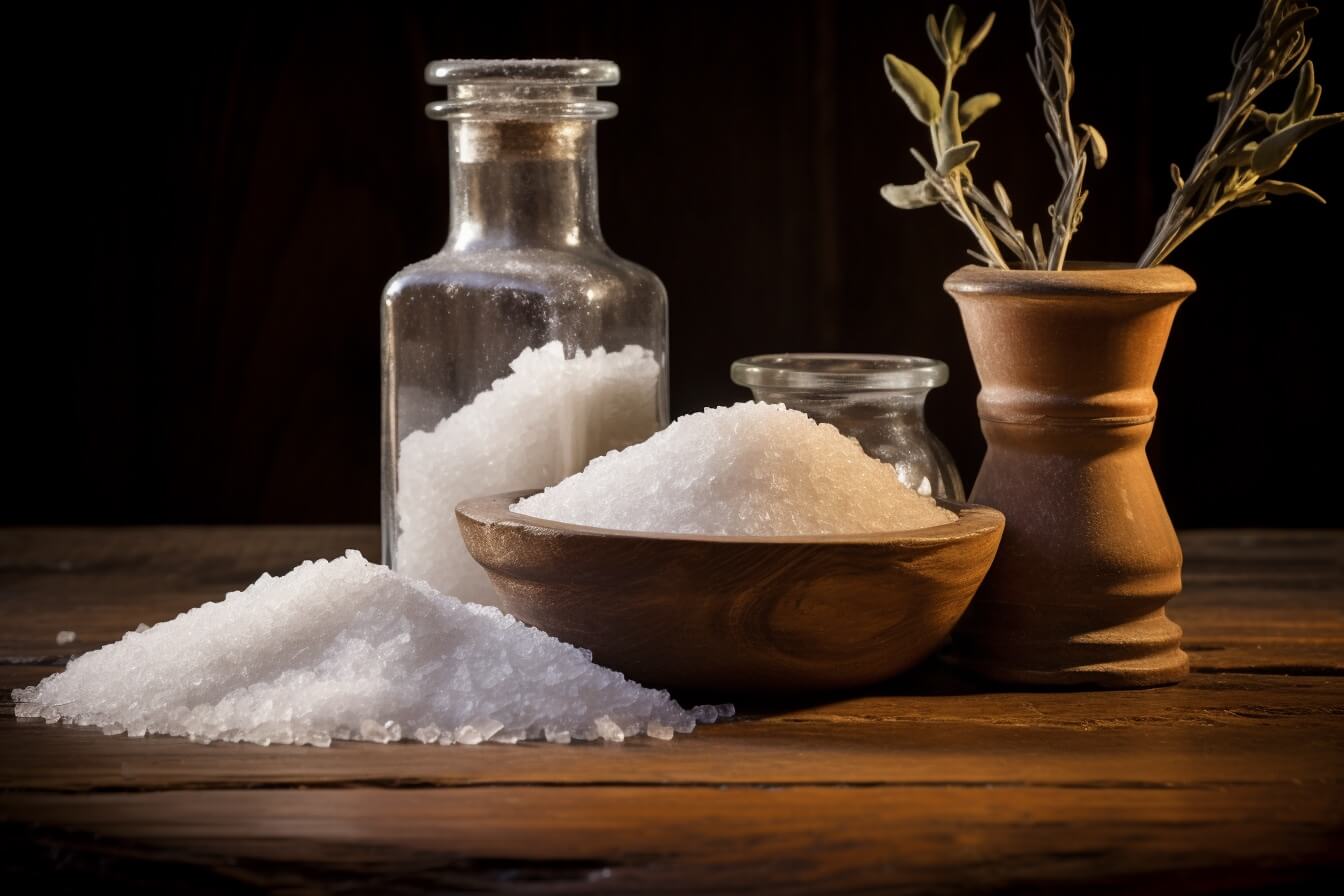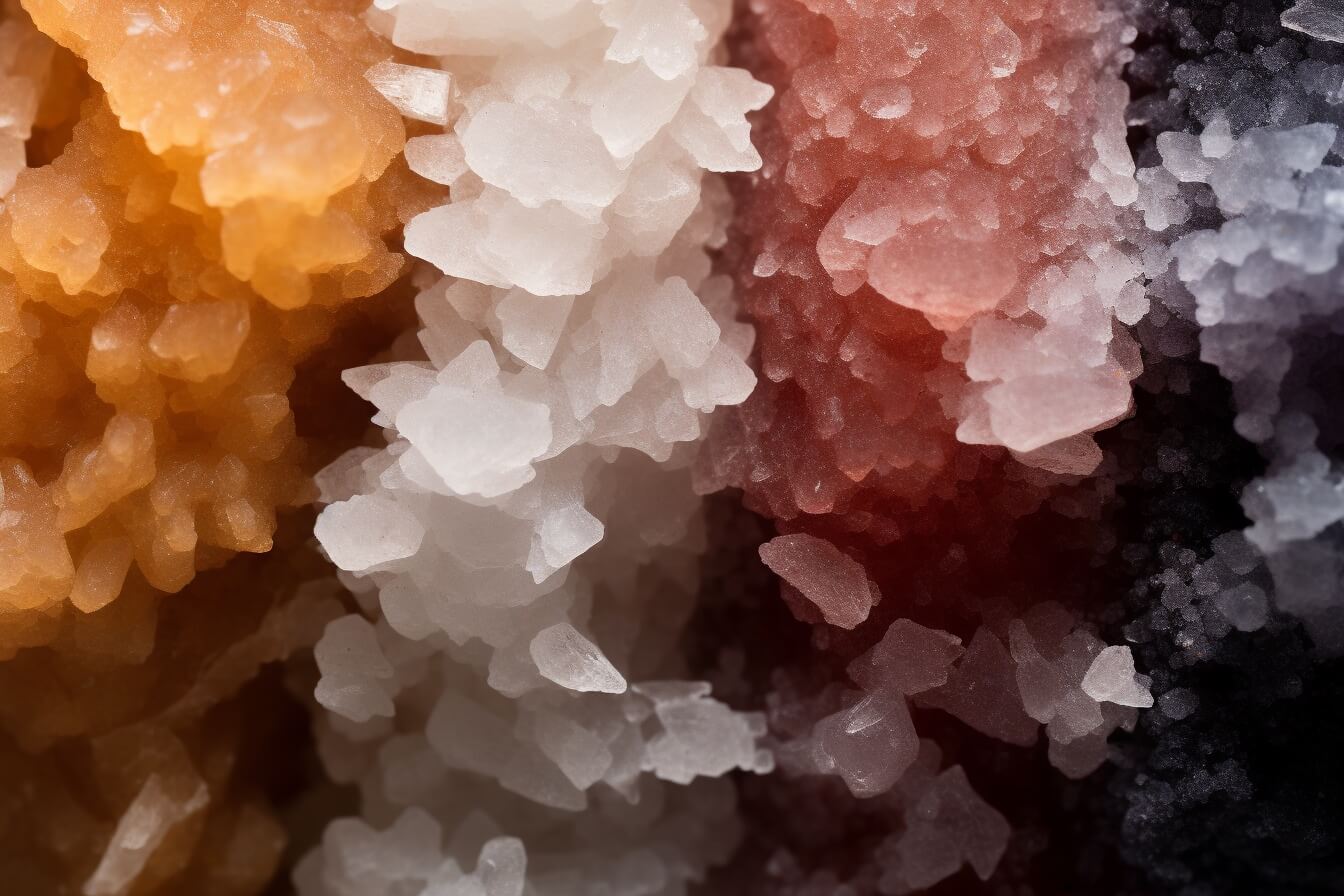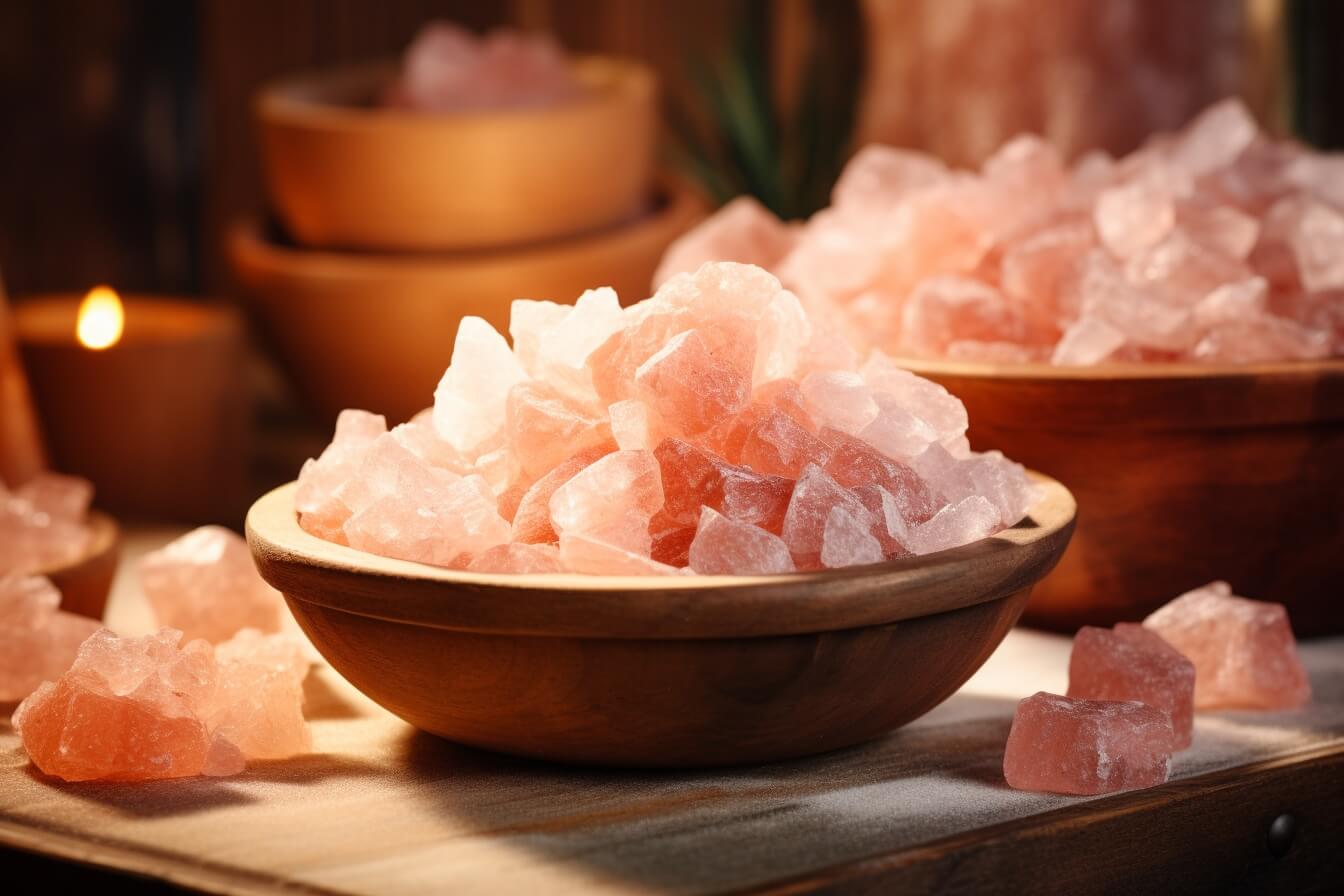First things first, let me assure you that consuming salt itself does not break a fast. Why? Because salt does not contain any calories, which is the main concern when it comes to breaking a fast. However, it’s important to note that indulging in processed packaged foods that are high in sodium and calories can indeed break a fast. So, it’s crucial to be mindful of what you’re putting into your body during fasting periods.
Main Points
- Salt itself does not break a fast because it does not contain calories.
- Adequate sodium levels are important during ketosis to prevent muscle cramps, fatigue, and headaches.
- Pink salt can be used to enhance the fasting experience and support overall well-being.

Does Salt Interfere With Autophagy?
While we already know that salt doesn’t break a fast, it’s important to note that consuming salt in its natural form, such as Himalayan salt, will not interfere with autophagy. Only carbs and protein turn off this beneficial process. Salt doesn’t raise blood sugar, so it doesn’t inhibit autophagy, according to The British Diabetic Association. In fact, adding a dash of Himalayan pink salt to water can be beneficial during fasting, which I’ll cover later in this article. Some individuals even consume bone broth, which contains salt, during their fasted state to support electrolyte balance. Bone broth doesn’t break a fast if it’s prepared correctly. Now, let’s explore the topic of whether salt spikes insulin.Does Salt Spike Insulin?
Contrary to popular belief, salt does not trigger an insulin response and therefore has no impact on fasting. Many people worry that consuming salt during intermittent fasting will spike insulin levels and break their fast. However, this is not the case. Salt contains no carbohydrates or protein that can stimulate insulin production (J Hum Nutr Diet, 2020). In fact, salt is primarily composed of sodium, chlorine, and trace minerals, which are essential for various bodily functions (Indian Journal of Environmental Protection, 2018). While excessive sodium intake can contribute to high blood pressure (Nutrients, 2022), there is no evidence of moderate consumption of pure salt crystals during fasting causing a negative effect. Moving on to the next section, let’s explore whether salt breaks ketosis.
Does Salt Break Ketosis?
No, salt does not break ketosis. Ketosis is the metabolic state in which the body burns fat for fuel instead of carbohydrates. Salt, on its own, does not contain carbs or protein to disrupt ketosis. Salt is an essential nutrient that plays a vital role in our overall health. It helps maintain proper fluid balance and nerve function, and it also aids in muscle contraction (J Exp Neurosci, 2018). During ketosis, when the body is in a fat-burning mode, it’s even more crucial to maintain adequate sodium levels. Low sodium levels can lead to various issues such as muscle cramps, fatigue, and headaches (The Journal of Immunology, 2022). Therefore, it’s important to ensure you’re getting enough salt in your keto diet. Apart from sodium, it’s important to get enough of other electrolytes on a keto diet. You can learn more in my other article titled “Do Electrolytes Break A Fast?“. In the next section, I will explore whether different types of salt break fasting.
Which Type Of Salt Is Best For Fasting?
Celtic sea salt, sendha namak, and Himalayan salt are superior choices for maintaining a fast while providing essential electrolytes. Unlike common table salt or artificially iodized salt, these types of salt contain trace amounts of minerals that are beneficial for bodily functions. Additionally, the American Heart Association suggests that reducing sodium intake from sources like table salt may lower the risk of heart failure. Sea salt, for example, helps regulate fluid balance and blood pressure due to its ocean mineral content (Coastal Management, 2022). Himalayan salt, also known as pink salt, contains electrolyte minerals and has less sodium compared to table salt (International Food Research Journal, 2016). If you don’t have access to either of these, the next best choice is kosher salt, as it’s less refined than table salt. Kosher salt typically does not contain additives like anti-caking agents, but make sure to check the label before buying a particular brand. Now, let’s delve into the benefits of consuming pink salt during fasting.
Benefits And Risks Of Consuming Pink Salt During Fasting
Pink salt contains sodium and potassium, which are important electrolytes for proper bodily function (Alzheimer’s Disease & Dementia, 2021). Additionally, Himalayan salt is said to boost blood flow to the stomach, further reducing hunger pangs, but there is no quality scientific evidence to support this claim. While there isn’t a direct confirmation of the touted benefits of consuming pink salt over common salt during fasting, it’s important to be aware of potential risks and side effects. Pink salt may naturally contain traces of metals like lead, mercury, and cadmium, which are considered unhealthy and potentially harmful in large concentrations. One study found that one pink salt sample contained a level of lead that exceeded the national maximum contaminant level set by Food Standards Australia (Foods, 2020). However, lead content in most tested samples was well within the legal limit of 0.50 ppm. It is important to note that most natural mineral supplements and food contain a small amount of heavy metals, but as long as you get your food and supplements from trusted companies that don’t add contaminants during processing, you don’t have much to worry about.
Additionally, consuming too much sodium can raise the risk for high blood pressure, according to CDC. However, the loss of sodium on a short fast isn’t thought to be enough to cause side effects for most people.
In summary, it’s important to have pink salt in moderation and consider getting a serum sodium blood test to monitor levels.
However, lead content in most tested samples was well within the legal limit of 0.50 ppm. It is important to note that most natural mineral supplements and food contain a small amount of heavy metals, but as long as you get your food and supplements from trusted companies that don’t add contaminants during processing, you don’t have much to worry about.
Additionally, consuming too much sodium can raise the risk for high blood pressure, according to CDC. However, the loss of sodium on a short fast isn’t thought to be enough to cause side effects for most people.
In summary, it’s important to have pink salt in moderation and consider getting a serum sodium blood test to monitor levels.
Can I Drink Salt Water During An Intermittent Fast?
You may be wondering if you can drink salt water during an intermittent fast. The answer is yes, you can. Here are three reasons why it can be beneficial:- Hydration: Adding a pinch of salt to water can enhance hydration by increasing water absorption and reducing dehydration. This is especially important during fasting when you may not be consuming food and fluids regularly.
- Electrolyte Balance: Sodium is an essential electrolyte that helps balance the body’s fluids. By drinking salt water, you are replenishing sodium levels and supporting optimal electrolyte balance.
- Taste and Satisfaction: Salt enhances the taste of water, making it more enjoyable to drink. This can help satisfy cravings and make fasting more sustainable.

Can Consuming Salt During Intermittent Fasting Lead to Ulcers?
Can intermittent fasting cause ulcers? This is a common concern among individuals practicing this dietary pattern. While excessive salt consumption has been associated with ulcers, there is no direct evidence linking it to intermittent fasting. However, it is always advised to practice moderation and maintain a balanced diet to minimize any potential risks.
Will Salt In Coffee Break A Fast?
No, adding a pinch of salt to your coffee will not break your fast. In fact, many people find that adding salt to their coffee can enhance the taste and keep them feeling more satisfied throughout their fast. It acts as a solid replacement for sugar and other sweeteners, cutting back the bitterness and giving you more of the true taste of the coffee blend. Regarding coffee itself, drinking black coffee won’t break your fast.
